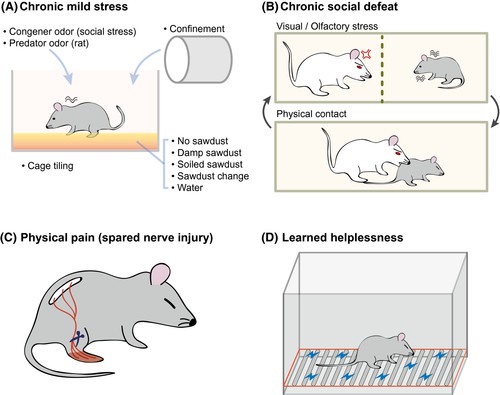How Causal AI Is Revolutionizing Decision-Making for Business Strategy and Growth
As businesses look to evolve and scale, the importance of smart, data-driven decision-making becomes even more critical. Traditional data analytics has provided insights for years, but recent advancements in AI decision-making through causal AI are transforming how businesses approach business strategy and growth. Unlike typical predictive models, causal AI doesn’t just forecast what will happen; it explains why things happen. This nuanced understanding gives businesses powerful tools for formulating and adjusting their strategies, offering more control over outcomes. In this guide, we’ll explore how causal AI is revolutionizing decision-making and shaping the future of strategic business growth.
Understanding Causal AI and Its Role in Business Strategy and Growth:
The Basics of Causal AI in Decision-Making
For businesses focused on business strategy and growth, causal AI provides a deeper level of understanding by distinguishing correlation from causation. While traditional AI models predict potential outcomes based on past data, causal AI goes further by determining the root causes of outcomes. This approach helps decision-makers understand not only the “what” but the “why,” making it possible to intervene strategically and control variables that influence outcomes. Causal AI offers businesses the ability to make data-backed decisions with greater precision, ensuring that strategies align with desired growth objectives.
Example Applications of Causal AI in Decision-Making:
- Marketing Strategy Optimization: Causal AI helps identify the specific campaigns or marketing efforts driving conversions, enabling companies to fine-tune their marketing strategies effectively.
- Product Development: By analyzing customer feedback and purchasing behavior, causal AI determines which product features or updates most influence customer satisfaction.
- Operational Efficiency: Identifying factors that directly impact productivity enables targeted adjustments, helping businesses increase efficiency in areas that affect growth.
How Causal AI Enhances Predictive Analytics for Business Strategy and Growth:
Moving Beyond Predictive Models to Actionable Insights
While predictive analytics has long been valuable for business strategy and growth, causal AI brings a new layer of insight by focusing on causative factors rather than mere correlations. This allows businesses to make targeted interventions that directly impact outcomes. For instance, rather than simply forecasting a drop in customer engagement, causal AI can help identify specific factors causing the decrease, such as product pricing, customer service response times, or feature availability.
McKinsey reports that businesses utilizing advanced analytics, including causal AI, are twice as likely to see a substantial return on investment compared to those using basic predictive models. The power of causal AI lies in its ability to provide actionable insights, guiding companies on which changes will lead to measurable improvements in business strategy and growth.
Practical Applications of Causal AI in Strategic Business Areas:
Optimizing Marketing and Customer Engagement
Causal AI provides a robust tool for understanding customer behavior and optimizing marketing efforts, which is essential for business strategy and growth. It enables businesses to determine which marketing tactics directly impact conversions and customer loyalty. This allows companies to allocate resources more efficiently, focusing on strategies that yield the highest return.
Examples of Marketing Optimizations Enabled by Causal AI:
- Campaign Effectiveness Analysis: Causal AI can pinpoint which elements of a campaign (e.g., messaging, timing, channel) have the strongest impact on engagement, enabling marketers to replicate successful strategies.
- Customer Journey Mapping: Identifying the causative factors at each stage of the customer journey can help businesses improve engagement and reduce churn.
By implementing causal AI in marketing, companies can create a more customer-centered approach, ultimately fostering sustainable growth.
Driving Operational Efficiency with Causal AI for Business Strategy and Growth:

Streamlining Operations for Scalable Growth
Operational efficiency is essential for any business seeking business strategy and growth. Causal AI allows businesses to analyze the causes behind inefficiencies, pinpointing areas for improvement with unprecedented accuracy. For instance, instead of simply identifying a slowdown in production, causal AI can determine whether it’s due to a shortage of materials, staffing levels, or equipment maintenance issues.
Examples of Operational Improvements Using Causal AI:
- Supply Chain Management: Causal AI can identify factors causing delays or increased costs, helping businesses address root issues.
- Workforce Optimization: By understanding the factors that influence employee productivity, companies can implement strategies to improve efficiency and reduce operational costs.
These insights enable companies to build robust, scalable operations that support long-term growth.
How Causal AI Supports Risk Management in Business Strategy and Growth:
Mitigating Risk with Targeted Insights
In business, managing risks effectively is crucial for sustainable business strategy and growth. Causal AI plays a pivotal role in helping companies identify and mitigate risks by analyzing factors that lead to unfavorable outcomes. This allows businesses to implement targeted risk management strategies, which are far more effective than broad, reactive measures.
For example, in financial services, causal AI can analyze market data to identify causative factors for stock fluctuations, informing investment strategies and helping companies make risk-adjusted decisions. Similarly, in manufacturing, causal AI can predict equipment failure by identifying the conditions that lead to breakdowns, allowing companies to implement preventative maintenance.
In risk-sensitive industries, causal AI provides a proactive approach to risk management, helping companies protect their resources while supporting growth goals.
Elevating Decision Intelligence with Causal AI for Business Strategy and Growth:
Enhancing Decision-Making with Deeper Data Insights
With causal AI, businesses can elevate their business strategy and growth by making data-backed decisions that are both targeted and efficient. Decision intelligence is the practice of using AI-driven insights to make informed decisions that align with business objectives. Decision intelligence paired with causal AI provides a deeper understanding of the causes behind business outcomes, empowering organizations to design more effective strategies.
Key Benefits of Causal AI in Decision Intelligence:
- Actionable Insights: Provides clear recommendations on which actions to take for improved outcomes.
- Alignment with Business Goals: Ensures that every decision aligns with long-term growth objectives.
- Continuous Improvement: Causal AI continuously refines its recommendations as new data becomes available, helping businesses stay agile.
This combination allows companies to implement strategies that are responsive to changing market conditions, fostering sustainable growth.
Using Causal AI to Drive Customer-Centric Business Strategy and Growth:
Personalized Customer Engagement and Retention Strategies
In today’s competitive market, customer satisfaction is a primary driver of business strategy and growth. Causal AI helps businesses deliver highly personalized experiences by analyzing factors that influence customer behavior and preferences. By understanding the reasons behind customer actions, companies can tailor their services to meet individual needs, resulting in stronger customer relationships and increased retention.
For instance, causal AI can analyze customer feedback and purchase history to determine the factors that lead to customer loyalty. This allows companies to implement targeted engagement strategies, such as personalized recommendations or loyalty rewards, that increase customer satisfaction.
Measuring the Success of Causal AI in Business Strategy and Growth:
Tracking Key Performance Indicators (KPIs) for Continuous Improvement
To maximize the value of causal AI, it’s essential to track KPIs that reflect business strategy and growth. Measuring specific metrics enables companies to assess the impact of causal AI and identify areas for improvement, creating a cycle of continuous refinement.
Essential KPIs to Monitor:
- Customer Retention Rate: Measures the effectiveness of causal AI-driven engagement strategies.
- Operational Efficiency Gains: Tracks the improvements in productivity and cost savings attributed to causal AI.
- Revenue Growth: Evaluates the financial impact of causal AI on overall business growth.
By analyzing these KPIs, companies can ensure that causal AI aligns with strategic objectives, providing a reliable framework for decision-making and growth.
Conclusion:
The integration of causal AI into business strategy and growth offers companies a unique advantage in today’s data-driven landscape. By going beyond predictive analytics, causal AI enables businesses to understand the true causes behind outcomes, empowering them to make decisions with greater precision and impact. Whether optimizing operations, enhancing customer engagement, or managing risks, causal AI provides actionable insights that drive sustainable growth.
As causal AI continues to evolve, it will play an increasingly central role in shaping strategic growth. For businesses ready to take advantage of these transformative capabilities, causal AI offers a pathway to smarter, more effective decision-making that aligns with long-term goals. Embrace causal AI, and prepare to revolutionize how your business scales and succeeds in a competitive market.




